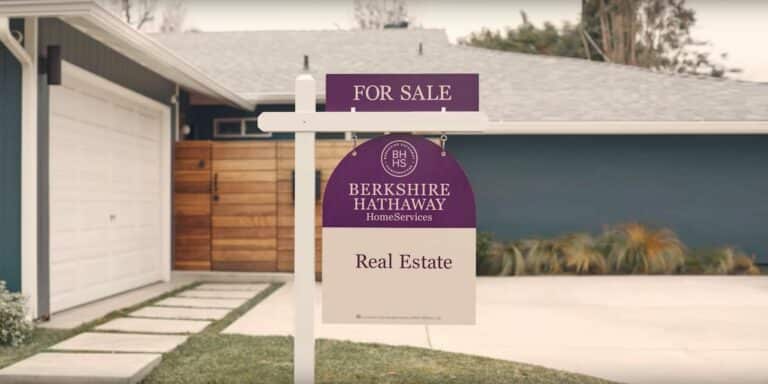RE/MAX Franchise Costs $44K – $242K (2024)

RE/MAX, one of the most recognized names in real estate franchising, was founded in 1973 by Dave and Gail Liniger. Headquartered in Denver, Colorado, RE/MAX has grown to become a global leader in real estate, boasting a vast network that spans over 100 countries.
The company began franchising in 1975, just two years after its inception, showcasing its early commitment to expansion and leadership in the real estate industry.
RE/MAX differentiates itself with its unique agent-centric business model, which allows real estate agents to keep a majority of their commissions while still benefiting from being part of a global real estate network.
This model has helped attract high-performing agents by offering them maximum commission with minimal mandatory expenses. Additionally, RE/MAX is recognized for its extensive training programs and technological support that empower agents to achieve greater productivity and professional success.

Initial investment
Here’s what you can expect to spend to start a RE/MAX franchise.
| Type of Expenditure | Amount |
|---|---|
| Initial franchise fee | $17,500 – $37,500 |
| Office set-up/improvements | $3,500 – $72,000 |
| Exterior office signage | $500 – $10,000 |
| Furniture, fixtures, and equipment | $2,000 – $20,000 |
| Computer System | $3,000 – $22,000 |
| Inventory and supplies | $500 – $4,000 |
| Education fees and expenses | $4,000 – $9,000 |
| Insurance | $2,000 – $6,000 |
| Licenses, Grand Opening, Utilities, Security Deposit, and other miscellaneous opening costs | $1,000 – $11,000 |
| Additional funds – 3 months | $10,000 – $50,000 |
| Total | $44,000 – $242,000 |
Note: The table above provides a snapshot of the main costs associated with starting the most common franchise format (as disclosed in the Item 7 of the Franchise Disclosure Document). For a complete overview of all the expenses involved with the various formats offered by the franchisor, please consult the Franchise Disclosure Document.

Franchise fees & Royalties
Here are the main ongoing fees the franchisor will ask you to pay going forward to run the franchise.
Initial Franchise Fee
The fee varies depending on whether you are purchasing a residential or commercial real estate franchise and the density of the area.
- For residential real estate in a high-density area, the initial franchise fee is $37,500 if financed, or $35,000 if paid in one lump sum.
- In a low-density area, the fee is $19,000 if financed, or $17,500 if paid in one lump sum.
- For commercial real estate, the initial franchise fee is $27,000 if financed, or $25,000 if paid in one lump sum.
Royalty Fee
- Component One Continuing Franchise Fee: $138 to $165 per month for each Sales Associate, with anticipated annual increases starting July 1, 2025.
- Component Two Continuing Franchise Fee: 1% of gross commissions and other revenue generated from real estate services.
Marketing/Advertising Fee
The marketing/advertising fee includes contributions to a national advertising fund and is typically about 2% of monthly gross revenues.
Technology Fee
The technology fee covers the use of RE/MAX’s proprietary software and systems and is approximately $500 per month.
Transfer Fees
The transfer fee for a franchise is $2,500, which is due upon approval of the transfer by RE/MAX.
Renewal Fees
The renewal fee is typically around $500, payable upon the execution of the renewal franchise agreement.
Franchise pros and cons
The pros:
- Simple staff requirements: The franchises require at least one staff member to launch and operate. It gives franchisees low startup costs and staff requirements.
- Financing assistance: The franchisor provides its franchisees with in-house financing to help them fund their franchise fee and startup costs.
- Training and ongoing support: RE/MAX offers its franchisees a detailed training program at its RE/MAX university and online. It trains them on its concept, recruiting and training their agents and customer service. Also, it offers them ongoing support through proprietary software and field operations.
- Lead generation: The franchisor provides its franchisees with national advertising strategies to attract customers and maintain high retention levels. It also offers them quality leads and referrals via Leadstreet®.
- Diversified services: The RE/MAX franchise presents its franchisees with a pool of tools and training to target a wider customer base and increase their earning potential. These include RE/MAX Collection for high-end homes and RE/MAX Commercial for commercial properties.
- Global real estate leader: RE/MAX is a leading real estate company that presents its franchisees with the opportunity to be part of the most successful global real estate network and enjoy strong business concepts and comprehensive systems.
The cons:
- No exclusive territory protection: RE/MAX does not offer its franchisee an exclusive territory to operate in. They may face competition from franchises licensed by the parent company or brands it controls.
- Not a passive investment opportunity: The franchise does present a passive investment opportunity. Franchisees must be involved in the daily operations of their offices.
- Not a part-time business: The franchisor requires franchisees to have their facilities open full-time.
- Not a mobile-based opportunity: The franchise cannot be run from home or a vehicle. Franchisees need an office space to operate from.
How to open a RE/MAX franchise
Opening a RE/MAX franchise involves several steps, designed to ensure you are a good fit for the franchise. Here are the main steps to follow to open a RE/MAX franchise.
1: Initial Research and Inquiry
- Understand the Franchise: Learn about RE/MAX’s business model, services, and the benefits of joining their global real estate network.
- Contact RE/MAX: Reach out through their official franchising website to express your interest and request more detailed franchise information.
2: Application Process
- Submit an Application: Complete the franchise application form provided by RE/MAX to start the formal evaluation process.
- Attend Discovery Day: Participate in a Discovery Day to learn more about the franchise operations, meet the franchisor team, and ask pertinent questions about the business model.
3: Review Franchise Disclosure Document (FDD)
- Receive and Review FDD: Carefully study the Franchise Disclosure Document, which includes detailed information about the franchise costs, obligations, and the support provided.
- Consult with Professionals: It’s advisable to consult with a franchise attorney and a financial advisor to ensure you fully understand the FDD and all related legal and financial implications.
4: Financial Planning and Approval
- Secure Financing: Determine your financing strategy to cover the initial franchise fee and other startup costs. RE/MAX offers various financing options or assistance in obtaining financing to qualified candidates.
- Approval Process: Once your financial and background checks are approved, finalize your franchise agreement with RE/MAX.
5: Training and Establishment
- Undergo Training: Complete RE/MAX’s comprehensive training program, which includes both in-person and online modules focusing on operations, sales, technology, and marketing.
- Set Up Your Office: With guidance from RE/MAX, choose a suitable location for your franchise and set up your office in line with RE/MAX branding and technology standards.
Disclaimer
Disclaimer: This content has been made for informational and educational purposes only. We do not make any representation or warranties with respect to the accuracy, applicability, fitness, or completeness of the information presented in the article. You should not construe any such information or other material as legal, tax, investment, financial, or other professional advice. Nothing contained in this article constitutes a solicitation, recommendation, endorsement, advertisement, or offer to buy or sell any franchises, securities, or other financial instruments in this or in any other jurisdiction in which such solicitation or offer would be unlawful under the franchise and/or securities laws of such jurisdiction.
All content in this article is information of a general nature and does not address the detailed circumstances of any particular individual or entity. Nothing in the article constitutes professional and/or financial and/or legal advice, nor does any information in the article constitute a comprehensive or complete statement of the matters discussed or the law relating thereto. You alone assume the sole responsibility of evaluating the merits and risks associated with the use of any information or other content in this article before making any decisions based on such information or other content.




